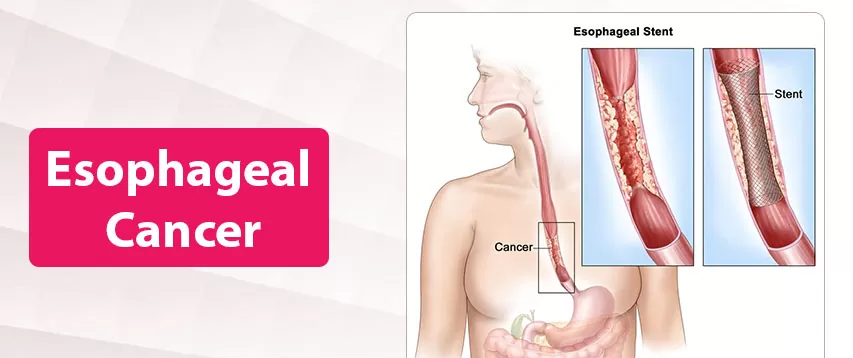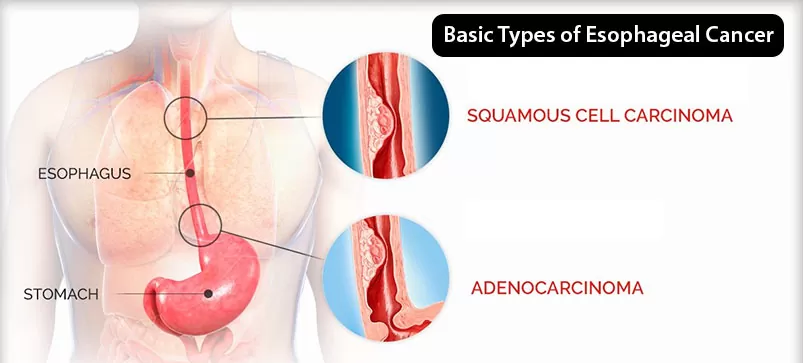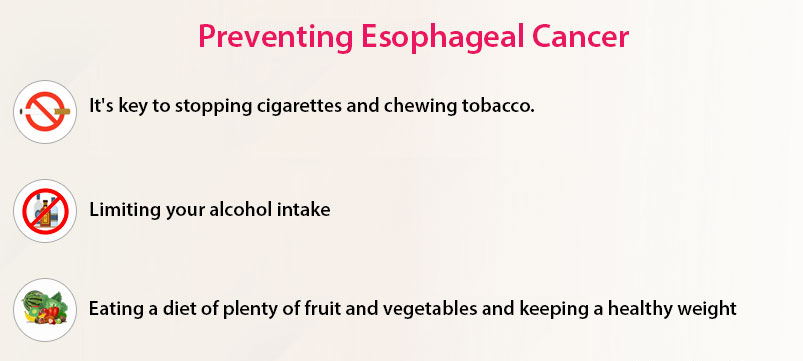Esophageal Cancer Treatment in Bikaner
Introduction and Overview: A Beacon of Hope in Bikaner
Facing a diagnosis of esophageal cancer can be an overwhelming and frightening experience. It is a journey that no one should walk alone. In the heart of Rajasthan, securing premier Esophageal Cancer Treatment in Bikaner is now a tangible reality, offering patients and their families renewed hope and access to world-class care. At the forefront of this advanced medical charge is Dr Rahul Oncologist, a specialist whose name has become synonymous with excellence in cancer care.

For many, he is not just a physician but the Best Oncologist in Bikaner, guiding them through the complexities of treatment with compassion and unparalleled expertise. Understanding this disease is the first step towards conquering it, and with the right guidance, the path to recovery is clearer. This comprehensive guide is designed to illuminate the critical aspects of esophageal cancer, from its early signs to the sophisticated therapeutic options available today. The journey of Esophageal Cancer Treatment in Bikaner is one of hope, backed by the profound experience of specialists like Dr Rahul Oncologist.
Patients seeking the Best Oncologist in Bikaner will find that a combination of advanced technology and deep-seated medical knowledge creates a formidable force against this challenging disease. This article will delve into the nuances of esophageal cancer, ensuring you are well-informed about the state-of-the-art Esophageal Cancer Treatment in Bikaner. The consistent goal is to empower patients with knowledge, a crucial element when navigating the path laid out by a professional like Dr Rahul Oncologist, widely regarded as the Best Oncologist in Bikaner.
This detailed exploration will cover the symptoms that should prompt immediate medical consultation, the underlying causes and risk factors, and a thorough breakdown of the modern treatment modalities that have revolutionized outcomes. We will specifically highlight the patient-centric approach that defines superior care and explain why a dedicated specialist is paramount. The landscape of Esophageal Cancer Treatment in Bikaner has been significantly elevated, thanks to the commitment of medical professionals who bring global standards of care to the local community. It is the mission of practitioners like Dr Rahul Oncologist to ensure that every patient receives a tailored, effective, and empathetic treatment plan.
As you read on, you will gain a deeper appreciation for why he is considered the Best Oncologist in Bikaner and how his approach is making a definitive difference in the lives of many. The focus is always on combining medical prowess with a human touch, a cornerstone of effective Esophageal Cancer Treatment in Bikaner. When faced with such a diagnosis, the expertise of your chosen physician is critical, and the reputation of Dr Rahul Oncologist as the Best Oncologist in Bikaner is built on a foundation of successful outcomes and patient trust.
Symptoms of Esophageal Cancer: Recognizing the Warning Signs
Esophageal cancer is often called a “silent” disease in its initial phases because it may not produce noticeable symptoms until it has progressed. This makes awareness of the subtle and overt signs critically important for early detection and for seeking timely Esophageal Cancer Treatment in Bikaner. Prompt consultation with a specialist like Dr Rahul Oncologist upon noticing any of these symptoms can significantly improve the prognosis.
The esophagus is a muscular tube that is highly flexible, allowing it to stretch to accommodate food. A tumor can therefore grow for a considerable time before it becomes large enough to cause symptoms by narrowing the passage.
Early and Common Symptoms
- Difficulty Swallowing (Dysphagia): This is the most common symptom of esophageal cancer. Initially, it may be a mild sensation of food getting stuck in the throat or chest, or a feeling of choking. People often subconsciously adapt by taking smaller bites, chewing more thoroughly, or avoiding solid foods like meat and bread. As the tumor grows, this difficulty progresses from solid foods to softer foods and eventually to liquids.
- Unexplained Weight Loss: Losing weight without trying is a significant red flag. This often occurs for two reasons in esophageal cancer: the difficulty in swallowing leads to reduced food intake and poor nutrition, and the cancer itself can increase metabolism and decrease appetite.
- Chest Pain or Discomfort: Some individuals experience a feeling of pressure, burning, or pain behind the breastbone (sternum) or in the middle of the chest. This pain is sometimes mistaken for heartburn. Pain may also be felt a few seconds after swallowing as food attempts to pass the tumor.
- Persistent Indigestion or Heartburn: While very common and usually benign, chronic or worsening heartburn (acid reflux) that does not respond to usual remedies should be investigated. Long-term acid exposure is a major risk factor for esophageal adenocarcinoma.
- Chronic Cough or Hoarseness: A persistent cough that isn’t related to a cold, or a change in voice, such as becoming hoarse, can occur if the tumor presses on the nerves that control the vocal cords.
Advanced Symptoms
As the cancer progresses, more severe symptoms may develop. Recognizing these is crucial for managing the disease, a specialty of the Best Oncologist in Bikaner.
- Vomiting or Regurgitating Food: As the esophagus becomes more blocked, undigested food may come back up.
- Black Stools: The tumor can bleed into the esophagus. This blood passes through the digestive tract and can make the stool appear black and tarry. Over time, this slow blood loss can lead to anemia (low red blood cell count), causing fatigue and weakness.
- Pain in the Back or Between the Shoulder Blades: This can indicate that the tumor has grown through the esophagus and is pressing on surrounding tissues.
- Hiccups and Bone Pain: If the cancer spreads (metastasizes) to other parts of the body, it can cause symptoms specific to that area. For example, spread to the diaphragm might cause hiccups, and spread to the bones can cause persistent bone pain.
It is vital to remember that many of these symptoms can be caused by other, less serious conditions. However, if you experience any of them, especially difficulty swallowing, it is essential to see a doctor for a proper diagnosis. Early diagnosis is the key to effective Esophageal Cancer Treatment in Bikaner, and a consultation with an expert like Dr Rahul Oncologist can provide clarity and a path forward.
Causes and Risk Factors of Esophageal Cancer
Understanding the factors that increase the risk of developing esophageal cancer is a cornerstone of both prevention and early detection. While the exact cause of any individual’s cancer may not be known, several well-established risk factors are associated with the disease. Discussing these risks with a professional like Dr Rahul Oncologist can help individuals in Bikaner understand their personal risk profile. These factors can be broadly categorized into lifestyle choices and pre-existing medical conditions.

There are two primary types of esophageal cancer, each with a slightly different set of dominant risk factors:
- Squamous Cell Carcinoma: This type arises from the flat, thin cells (squamous cells) that line the surface of the esophagus. It is most often found in the upper and middle parts of the esophagus.
- Adenocarcinoma: This type arises from gland cells. Before it develops, the glandular cells often replace an area of squamous cells, a condition known as Barrett’s esophagus. This cancer is most common in the lower part of the esophagus.
Lifestyle-Related Risk Factors
- Tobacco Use: Smoking cigarettes, cigars, pipes, or using chewing tobacco is a major risk factor for both main types of esophageal cancer, but the link is particularly strong for squamous cell carcinoma. The longer and more heavily a person smokes, the higher the risk.
- Alcohol Consumption: Heavy and long-term alcohol intake significantly increases the risk of squamous cell esophageal cancer. The combination of smoking and drinking alcohol raises the risk much more than either factor alone, as alcohol may act as a solvent, helping the carcinogens in tobacco penetrate the cells of the esophagus.
- Obesity: Being overweight or obese is a significant risk factor for esophageal adenocarcinoma. Excess body fat can lead to chronic inflammation and is strongly linked to gastroesophageal reflux disease (GERD).
- Diet: A diet low in fruits and vegetables is associated with an increased risk. Conversely, a diet rich in these foods may have a protective effect. Consuming very hot liquids regularly may also increase the risk of squamous cell carcinoma by repeatedly injuring the esophageal lining.
- Physical Inactivity: A sedentary lifestyle contributes to obesity and other health issues that can indirectly increase cancer risk.

Medical and Other Risk Factors
- Gastroesophageal Reflux Disease (GERD): GERD is a condition where stomach acid persistently flows back into the lower esophagus. This chronic acid exposure can irritate and damage the esophageal lining, significantly increasing the risk of adenocarcinoma. Many people with GERD experience symptoms like heartburn, but some have no symptoms at all. Initiating a plan for Esophageal Cancer Treatment in Bikaner often starts with managing precursor conditions like severe GERD.
- Barrett’s Esophagus: In some people with long-term GERD, the chronic acid damage causes the normal squamous cells of the lower esophagus to be replaced by gland cells (a process called metaplasia). This condition, known as Barrett’s esophagus, is a pre-cancerous condition and is the single strongest risk factor for esophageal adenocarcinoma. Individuals with Barrett’s esophagus require regular monitoring from a specialist, and guidance from the Best Oncologist in Bikaner can be invaluable.
- Achalasia: This is a rare disorder where the lower esophageal sphincter (the muscle at the bottom of the esophagus) does not relax properly, making it difficult for food and liquid to pass into the stomach. The trapped food and irritation can increase the risk of squamous cell carcinoma over time.
- History of Certain Cancers: People who have had certain other cancers, such as those of the head, neck, or lung, have a higher risk of developing squamous cell esophageal cancer. This is often due to shared risk factors like smoking and alcohol use.
- Injury to the Esophagus: Accidental ingestion of lye or other caustic substances can cause severe damage and scarring to the esophagus, which increases the risk of squamous cell cancer many years later.
- Human Papillomavirus (HPV): Infection with certain types of HPV has been linked to esophageal cancer in some parts of the world, though its role is less clear in Western countries.
- Age and Gender: The risk of esophageal cancer increases with age, with most cases diagnosed in people over 55. Men are about three to four times more likely than women to develop the disease.
Understanding these risks is the first step in prevention. For those diagnosed, however, the focus shifts to treatment. The advanced Esophageal Cancer Treatment in Bikaner provided under the care of experts like Dr Rahul Oncologist addresses the disease head-on, regardless of its cause.
Treatment of Esophageal Cancer: A Modern, Multidisciplinary Approach
When it comes to the effective management of this complex disease, the approach to Esophageal Cancer Treatment in Bikaner has been transformed by adopting modern, evidence-based protocols. The key to success lies in personalized, multidisciplinary care, spearheaded by a highly qualified specialist. This is where the expertise of Dr Rahul Oncologist becomes paramount. Widely acclaimed as the Best Oncologist in Bikaner, he brings a wealth of experience from one of the world’s leading cancer centers, ensuring that patients receive a treatment plan that is not only advanced but also tailored to their specific cancer type, stage, and overall health. His philosophy is rooted in combining cutting-edge science with compassionate, patient-centered care, making him a trusted leader in the field.
The treatment of esophageal cancer is rarely a single-modality affair. It often involves a strategic combination of therapies, including chemotherapy, radiation therapy, targeted therapy, and immunotherapy, sometimes in conjunction with surgery. As the Best Oncologist in Bikaner, Dr Rahul Oncologist collaborates with a team of surgeons, radiologists, and other specialists to create a comprehensive and cohesive treatment strategy. This team-based approach ensures that every aspect of the patient’s condition is considered, leading to better outcomes. The availability of such sophisticated Esophageal Cancer Treatment in Bikaner means patients no longer need to travel to larger metropolitan cities for world-class care.
Detailed Treatment Options
The choice of treatment depends on several factors, including the type of cancer (squamous cell or adenocarcinoma), the stage of the cancer (how far it has spread), the location of the tumor, and the patient’s general health and personal preferences. Dr Rahul Oncologist excels in navigating these complexities to recommend the most effective path forward.
Chemotherapy
Chemotherapy uses powerful anti-cancer drugs to kill cancer cells or stop them from growing. These drugs are typically administered intravenously and travel throughout the bloodstream, making this a systemic treatment effective against cancer that may have spread.
- Neoadjuvant Chemotherapy: Given before surgery (often combined with radiation) to shrink the tumor, making it easier to remove completely and increasing the chances of a successful operation. This is a standard approach in modern Esophageal Cancer Treatment in Bikaner.
- Adjuvant Chemotherapy: Given after surgery to eliminate any remaining cancer cells that are too small to be seen, reducing the risk of recurrence.
- Palliative Chemotherapy: For advanced cancers that cannot be cured, chemotherapy can help to shrink tumors, relieve symptoms like difficulty swallowing, and improve quality of life.
Radiation Therapy
Radiation therapy uses high-energy rays (like X-rays) or particles to destroy cancer cells. As an oncologist with an MD in Radiation Oncology, Dr Rahul Oncologist has deep expertise in this modality.
- External Beam Radiation Therapy (EBRT): This is the most common type, where a machine outside the body directs radiation at the cancer. Advanced techniques like Intensity-Modulated Radiation Therapy (IMRT) and Image-Guided Radiation Therapy (IGRT) are used to precisely target the tumor while sparing surrounding healthy tissues like the heart and lungs.
- Chemoradiation: Combining chemotherapy with radiation is often more effective than either treatment alone. The chemotherapy drugs can make the cancer cells more sensitive to radiation. This is a primary treatment for patients who are not candidates for surgery and a standard neoadjuvant approach for those who are.
Targeted Therapy
Targeted therapy is a newer form of cancer treatment that uses drugs designed to attack specific vulnerabilities in cancer cells. Unlike chemotherapy, which affects all rapidly dividing cells, these drugs have more specific targets, often resulting in different and less severe side effects.
- HER2-Targeted Drugs: Some esophageal adenocarcinomas have too much of a growth-promoting protein called HER2. Drugs like Trastuzumab can target this protein and are often used in combination with chemotherapy for HER2-positive cancers. The Best Oncologist in Bikaner will always ensure tumors are tested for such markers to personalize treatment.
- Anti-Angiogenesis Drugs: These drugs work by blocking the formation of new blood vessels that tumors need to grow and spread.
Immunotherapy
Immunotherapy is a revolutionary approach that harnesses the power of the patient’s own immune system to fight cancer. Cancer cells often have ways of hiding from the immune system. Immunotherapy drugs, particularly “checkpoint inhibitors,” can unmask the cancer cells, allowing the immune system to recognize and attack them.
- PD-1/PD-L1 Inhibitors: Drugs like Pembrolizumab and Nivolumab have shown significant promise in treating advanced esophageal cancer, particularly squamous cell carcinoma. They can be used as a first-line treatment along with chemotherapy or as a second-line treatment after other therapies have failed. The integration of immunotherapy into Esophageal Cancer Treatment in Bikaner represents a major leap forward, offering new hope for patients with advanced disease.
The deep expertise of Dr Rahul Oncologist in medical oncology, particularly with these advanced systemic therapies, ensures patients in Bikaner have access to the very latest treatment paradigms.
Dr. Rahul Oncologist: Credentials and Experience
To provide the highest standard of care, a physician must possess both exceptional training and extensive experience. Dr. Rahul’s qualifications place him at the pinnacle of oncology practice.
- MBBS: Foundational medical degree.
- MD (Radiation Oncology), SPMC Bikaner: Specialized training in the use of radiation to treat cancer, completed locally at a prestigious institution.
- DM (Medical Oncology), Tata Memorial Hospital, Mumbai: Super-specialty training in chemotherapy, immunotherapy, and targeted therapy from India’s most renowned cancer center.
- Ex-Assistant Professor at Tata Memorial Hospital, Mumbai: Experience in a high-volume, academic setting, contributing to both patient care and research at the forefront of oncology.
- Over 10 years of experience in cancer treatment: A decade of dedicated practice, managing a wide spectrum of complex cancer cases.
This unique combination of training in both Radiation and Medical Oncology gives Dr Rahul Oncologist a comprehensive understanding of all non-surgical cancer treatments, making him uniquely qualified to devise the optimal integrated plan for each patient and cementing his reputation as the Best Oncologist in Bikaner. This level of expertise is central to the superior Esophageal Cancer Treatment in Bikaner that patients can now receive.